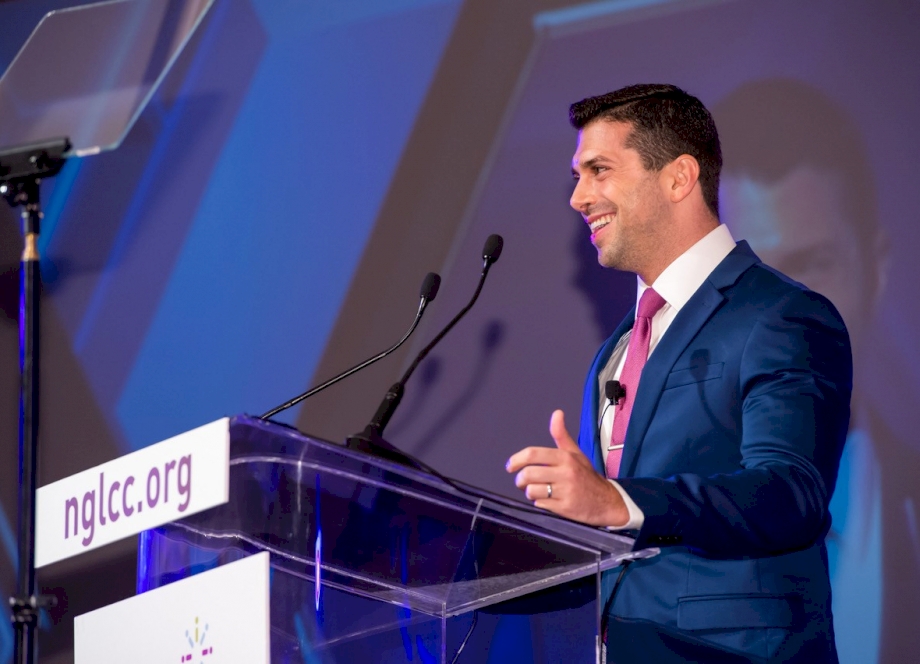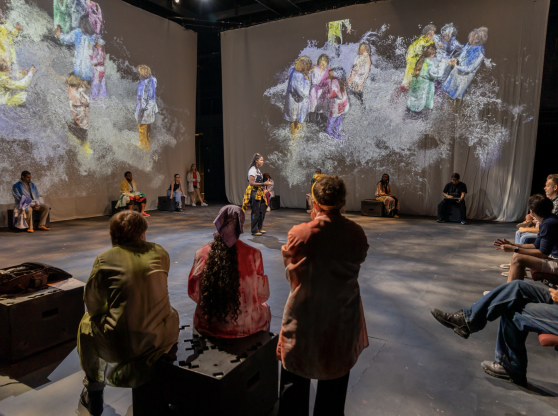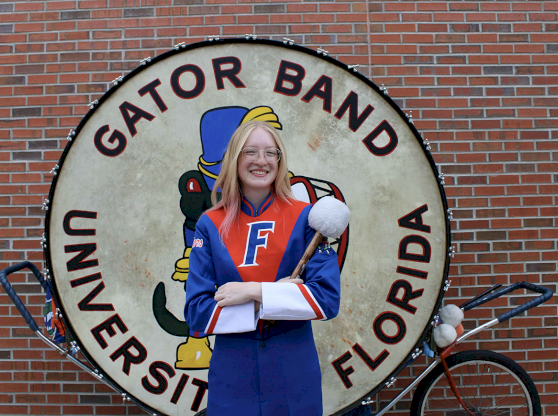An alumnus of the UF School of Theatre + Dance, Jonathan D. Lovitz (BFA Musical Theatre ‘06) is a Senior Vice President at the National LGBT Chamber of Commerce (NGLCC). In addition to leading public affairs, media relations, supplier diversity and political advocacy efforts, he regularly speaks at conferences and the press about LGBT economic empowerment and the vital role business plays in creating equity for the LGBT community.
Lovitz was nominated by UF Performing Arts as a 2018 Outstanding Young Alumnus and received the award at the university-wide ceremony on April 14. Also this year, Lovitz was named one of the top "40 LGBTQ Leaders Under 40" in Business Equality Magazine.
Which teachers inspired you during your undergrad and why?
I will always be indebted to the the entire UF School of Theatre + Dance faculty and staff for making me the man I am today. I had the incredible privilege of performing in at least one MainStage production per semester, along with several Florida Players, local theatre company, and professional summer stock productions each year. By the time I graduated I added nearly 20 shows to my resume— but few will have impacted more than those I did with Tony Mata. He saw potential in me and helped me sharpen the skills that led to a phenomenal career immediately after leaving UF.
What was your biggest takeaway from UF?
My biggest takeaway from UF was a sense of how important it is to always be learning. To succeed as a performer—or in any career, truly—you must soak in all the knowledge and experience you can from mentors and teachers. But even more important is to extend yourself miles beyond your comfort zone, exploring topics and feelings foreign and scary to you. As a performer, how can you possibly hope to embody someone else if you know nothing about that kind of life? And as a good person, how can you fully embrace humanity if you only wish to thrive in your safe bubble of understanding? UF taught me that there is a bright, diverse world all around us —and we owe it to ourselves to see and feel it all.
What was your transition like from graduating from the musical theatre program into the real world?
I know I am one of “the lucky ones” by walking across the stage at graduation in Gainesville and immediately to New York City for rehearsals for a national tour of a hit Broadway musical (in this case, Joseph and the Amazing Technicolor Dreamcoat). I will never forget how special it was to break the news to my family at commencement. Kevin Marshall was chair of the School of Theatre + Dance at the time and was presenting me with the Outstanding Student Award for the undergrad class of 2006. In reading off my bio and credits he added that, “Jonathan wants me to apologize in advance to his family because he won’t be seeing much of them over the next year, he’s going on tour…” I still hear my parents gasping in University Auditorium. The transition was easier than I thought because UF had instilled a strong work ethic in me—I knew how to treat my body well, keep learning and growing as a performer, and always be grateful and humbled by the privilege to be an artist. The values of community, commitment and confidence I learned in my years at UF set me up for success as an actor, and even more so now in my career in advocacy and politics.
How has your theatre training specifically helped you as the Senior Vice President at the National Gay & Lesbian Chamber of Commerce?
UF’s theatre training (literally) helped me find my voice. I was an honors program student during my time at UF, so I was required to take courses far from my major in musical theatre to help broaden my horizons. That’s where I took my first courses in political science, anthropology and communications—all fields I found fascinating, but clearly not a fit for me at the time while I was focused on singing and dancing. Little did I know that the spark would soon grow into a bright flame for activism that fuels the work I do now: traveling the country speaking to legislators and industry leaders, stumping for our causes on national television and radio, and fighting for the kinds of change that help more communities succeed. I use every element of my vocal, physical and emotional training as a performer to convince political leaders, donors and the public that the causes I am honored to fight for matter to all of us. I could never do what I do now had I not been trained to be a professional artist. In fact, some of my closest friends and colleagues in politics and media all started in the arts and owe their success to the strength and poise being a performer gave them.
How do you think advocating for these important social issues affect theatre and the arts?
To quote my favorite show, The West Wing (as I very often do), "There is a connection between progress of a society and progress in the arts. The age of Pericles was also the age of Phidias. The age of Lorenzo de Medici was also the age of Leonardo Da Vinci. The age of Elizabeth was the age of Shakespeare.” Our communities thrive when the arts thrive. Equality, opportunity and inclusion are all furthered by storytelling—we need great art, in all its forms, to advance social causes. I was so grateful to be invited back for the 50th anniversary of Constans Theatre in 2017 and teach a workshop on arts advocacy. All the principles I use at my job fighting for equality apply to fighting to protect our arts programs. We need to touch people intimately, reminding them what a world without beauty and art would be like—make them see the impact their support has on their immediate lives. Once you have someone connecting their personal success to a movement, everyone wins.
What is your favorite part about your organization and why?
My favorite part about my work is knowing that it makes a tangible difference in people’s everyday lives. It’s never been more important to celebrate diversity and ensure everyone has the right to succeed. I am particularly amazed by the young people I meet at conferences or on college campuses taking advocacy into their own hands and using the internet to find new ways to get involved in causes that used to seem too big or too remote for them to engage in meaningfully. As someone who has been made a better community advocate from years of theatre training and performance, I know firsthand how valuable it is to encourage young adults to explore the arts and humanities, so they can put their fullest, most well-rounded selves into everything they do.
What is something people don’t know about you?
Most people assume that those who love to perform or speak in front of crowds are never afraid of it. I’ve come to know a lot of actors and communicators who, like me, are “extroverted introverts”—and sometimes need a long break from being “on” for work in the silence and safety of home.
What is the best advice you have ever received?
The best advice I ever received is to trust your gut and be prepared. Your career path is going to be anything but straight—which wouldn’t be any fun. So learn all you can, be kind-hearted and full of training and experience so that your sails are always tight when the wind of opportunity blows. And don’t be afraid that the wind will take you somewhere totally unexpected and thrilling. The most wonderful and impactful experiences in my career began with a leap of faith that the unknown will be the start of my best adventure yet. And as my amazing husband reminds me every day, “It always works out.”



